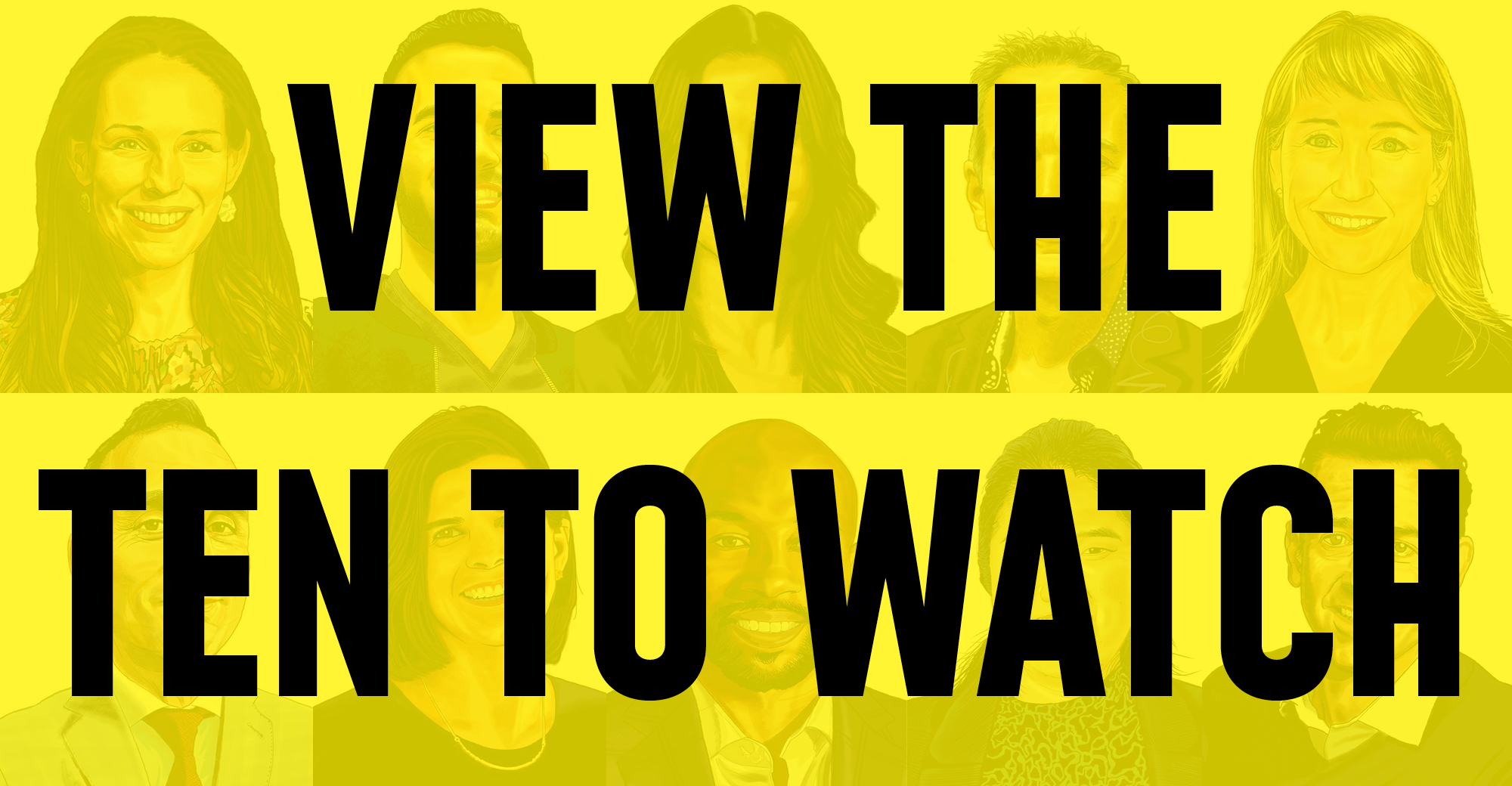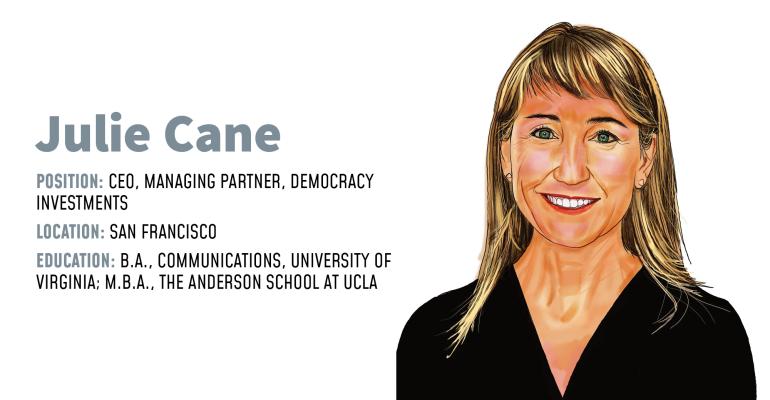As a helicopter pilot in the U.S. Navy, Julie Cane’s served from the Philippines to San Diego, shuttling dignitaries and leading combat search and rescue training events. (At one point, Cane recalled acting as a downed pilot in a joint training effort between the Marines and the Navy SEALs.)
But Cane knew she couldn’t be a pilot forever and eventually accepted an honorable discharge, opting to, “fly a desk in the business world [rather] than fly a desk in the Navy.” She joined SEI, completed her MBA at UCLA and was later recruited by Wells Fargo Private Bank.
 But Cane stayed in touch with friends in the Armed Forces. They collectively worried about the direction of the world. She also eyed the rise in popularity of impact investing and ESG, and she didn’t understand why ETFs like those managed by MSCI and FTSE continued allocating to assets in authoritarian countries.
But Cane stayed in touch with friends in the Armed Forces. They collectively worried about the direction of the world. She also eyed the rise in popularity of impact investing and ESG, and she didn’t understand why ETFs like those managed by MSCI and FTSE continued allocating to assets in authoritarian countries.
Inspired by this dissonance, Cane formed Democracy Investments with several partners and serves as the firm’s CEO. Democracy Investments sponsors passive ETFs with a strategy Cane hopes can scale to compete with the heavy hitters of Vanguard, BlackRock and State Street.
“We’re the only all-world ex-U.S. strategy that accounts for geopolitical risk,” she said. “And democracy is under attack.”
The team originally considered an active ETF strategy, but Cane opted to forge an exclusive arrangement with The Economist to create an index. Democracy Investments used the magazine’s Democracy Index as an overlay to create the firm’s own ETF, Democracy International Fund (DMCY).
The Economist’s annual Democracy Index rates countries using 60 separate indicators, in topics ranging from electoral stability, political participation and whether there’s been an erosion in civil liberties.
By tying the ETF to the Democracy Index, Cane and her team avoid the “incredibly difficult undertaking” of constantly reassessing (at a cost) whether particular securities are tied to the CCP in China, for example.
The ETF tracks an index with the same basket of international equities as the MSCI ACWI Ex- U.S. Index (a market cap weighted index consisting of more than 2,900 large- and mid-cap securities in developed and emerging markets). The firm then assigns each security a democracy score from The Economist based on the security’s “country of risk” as defined by Bloomberg, according to Cane.
It currently invests in country and regional ETFs tracking the ACWI Index. This is done to keep transaction costs low, though as the fund grows, Cane said Democracy Investments plans to shift their funds into the underlying securities.
Cane’s core thesis is that economies in democracies perform better over the long run in contrast with those tied to authoritarian regimes. Those tend to suffer from higher volatility and experience more frequent short-term crises. While democracies typically enjoy the rule of law and property rights, authoritarian countries experience frequent wars and civil unrest.
“Why would you want your international portfolio to encourage the growth of authoritarian economies when instead, with our strategy, you can promote the growth of democracies and their economies, and incentivize authoritarians to become more democratic to get more capital?” Cane asked.
It’s why the firm’s fund tilts and doesn’t screen countries out, according to Cane. Barring instances where countries face U.S. or international sanctions (as with Russia in the wake of its invasion of Ukraine), Democracy Investments doesn’t entirely remove a country from its listings.
“So, if a country starts to improve, they’ll get more capital in our strategy,” Cane said. “And if we get really big, like a Vanguard fund, I think countries will take note; ‘which factors do I need to improve so my tilt is greater?’”
The ETF launched in March 2021 and currently has $7.09 million in net assets, with the company hoping to scale to a point where it can lower its costs to become even more competitive. The fund rebalances quarterly and adjusts its tilt annually when the Democracy Index is published each year.
